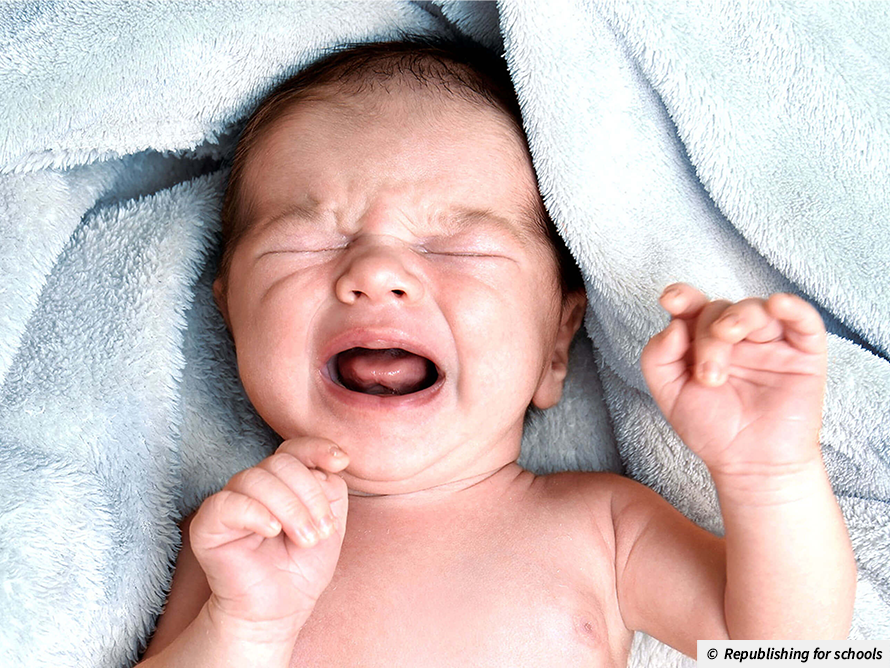Are scientists creating a moral nightmare? The UK’s first baby with DNA from three people has been born in a bid to fight mitochondrial diseases. Some worry we are edging into an ethical grey area.
Britain’s first three-parent baby is born
 Nuclear family? Over 99.8% of the baby's DNA will be from its mother and father.
Nuclear family? Over 99.8% of the baby's DNA will be from its mother and father. Glossary
Embryos - An unborn or unhatched offspring in the process of development.
Dystopia - The opposite of utopia (an imaginary vision of a perfect world). The term dystopia comes from Greek and literally means bad place.
Defective - Not working.
Mitochondria - Small organs within nearly all types of human cell that generate much of the cell's energy. Often called the 'powerhouse of the cell'.
IVF - In vitro fertilisation is a technique used to help people with fertility issues have a baby.
DNA - Deoxyribonucleic acid is the material in an organism that carries genetic information.
Schizophrenia - A mental illness often accompanied by delusions and hallucinations. The term derives from two Greek words meaning "divided" and "mind".
Eugenics - The idea that human beings should be improved through genetic engineering. In the past, eugenics has generally involved killing people who are deemed “inferior”.
